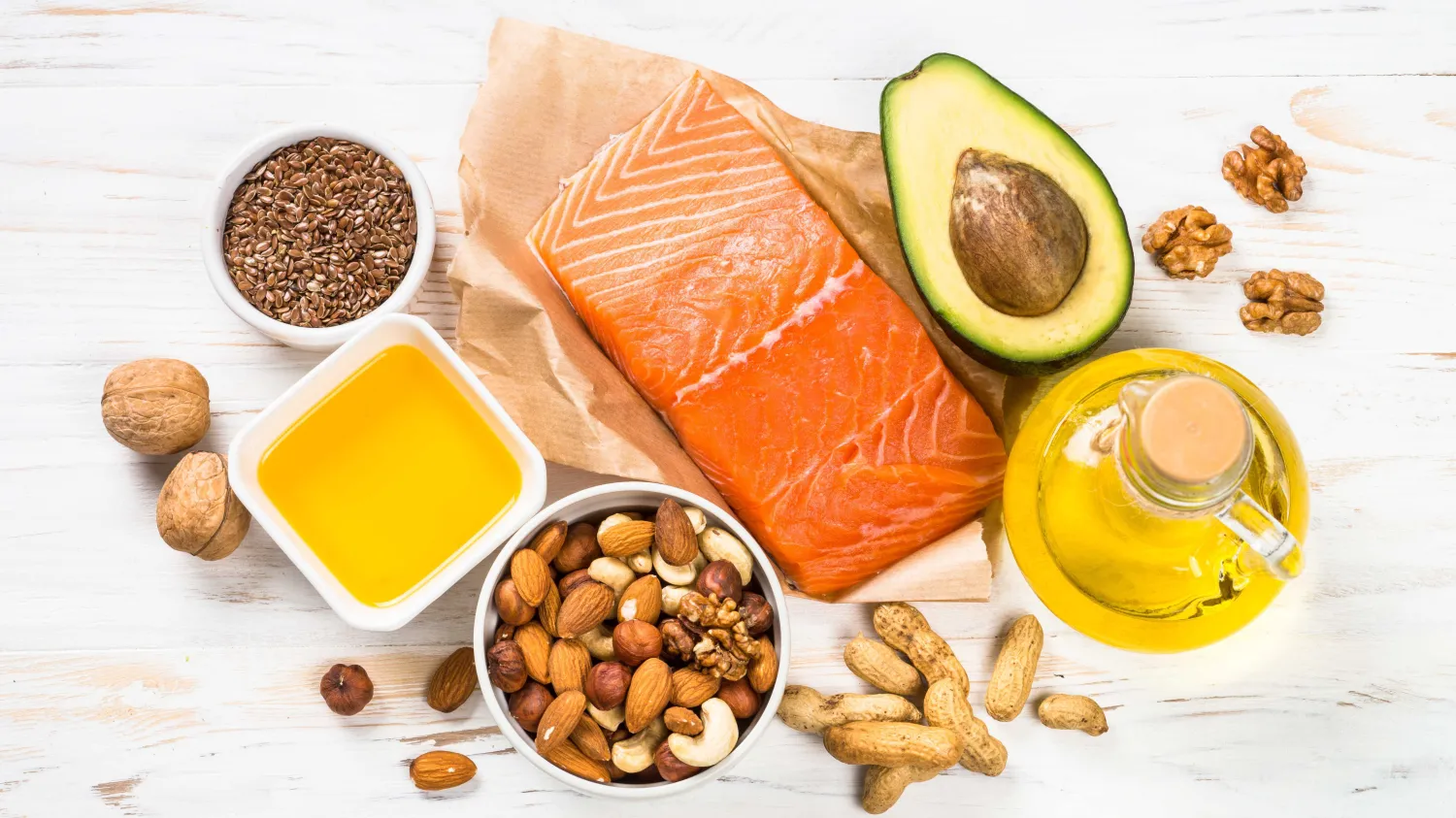Healthy fats and their benefits
- Get link
- X
- Other Apps
Healthy fats and their benefits

Every time we go to the supermarket, we can find endless food products, from cold meats such as chicken or fish to fruits and vegetables such as avocado or tomato.
But we can also find a hallway full of oils of different shapes, sizes, and colors, with different smells and origins. We will also find other hallways full of seeds, chocolates, and cookies, among other products. Each contains various properties that may be good or bad for our health.
To do this, today we will tell you a little more about the different fats. Also, you will learn how they work, why they are necessary for good health, and in which foods or oils we can find the best fats for our bodies.
What are fats?
Fats are an essential macronutrient for the human body that provides a large part of the energy we need and helps us cover many of the daily requirements necessary to carry out our daily activities.
In fats, we not only find energy, but we can also find vitamins such as vitamins K, A, E, or D, and you can find fatty acids necessary for a balanced diet.
There are good and bad fats, which depend on the consumption level and their nature at room temperature, but we will discuss that later. The critical thing about fats is knowing how to destroy them and avoiding bad fats or trans fats.
What are the functions of fats in our body?
Fats contribute many things to our bodies and our health. Everything must be in moderation—that is the key to a balanced diet. Some functions of fats in our body we tell you below. Keep reading to find out.
Energy
We require energy expenditure and storage to carry out our daily activities. Running, exercising, walking from one place to another, or even things we naturally do, such as digestion, breathing, or our internal organs working, require energy, and fats are a rich energy source.
Structural
The lipids that make up our body's cell membranes are made from fats. Fats are part of our cellular and adipose systems. Fat covers part of the cells that help them to be much healthier and have a small layer that protects them from external damage, both internally and externally.
Hormones
Part of the goals that fats fulfill in the human body is within our hormone system. Most of the hormones have a lipid nature, which means that their coating is made of fats, which are necessary for their formation.
Absorption
Another of the thousands of benefits that fats give our body is the absorption of vitamins. Different components are necessary for many processes to be carried out in our body, and additional features are required.
For example, vitamin C cannot be absorbed without vitamin D. The same happens with fat-soluble vitamins like vitamin D, K, E, and A. For the correct absorption, the presence of fats is indispensable.
They are one of the essential elements which transport many crucial nutrients in our blood.
Good fats vs. bad fats
Fats are indeed necessary for our physical well-being and better health in general. However, fats have different classifications that, depending on it, will be better or worse for our health.
Saturated Fats
Saturated fats tend to solidify at room temperature, which causes blockages within the arteries.
We can find this type of fat in foods of animal origin, such as pork, or in oils, such as coconut oil, palm oil, or butter.
The most recommended thing is that in a balanced diet, you only consume 10%, and the vast majority can be found in meats, eggs, or milk.
Trans fats
Trans fats are the most harmful to the human body, since they have undergone specific processes.
When fats are processed, they tend to solidify at room temperature. In the same way, they solidify inside our bodies, clogging the arteries. All foods that are processed and refrigerated tend to have this type of fat, plus some margarine and kinds of butter tend to have it.
Unsaturated fats
Unsaturated fats such as omega 3-6-9 are healthier for the human body. These fats are found in oils of vegetable origin, such as soybean oil, rich in these fatty acids, in foods with a high content of omega-3, such as fish or avocado, and in seeds in general.
Approach the experts to learn more about vegetable oils and the benefits that they can bring to your health with Nurtioli.
- Get link
- X
- Other Apps
Comments
Post a Comment